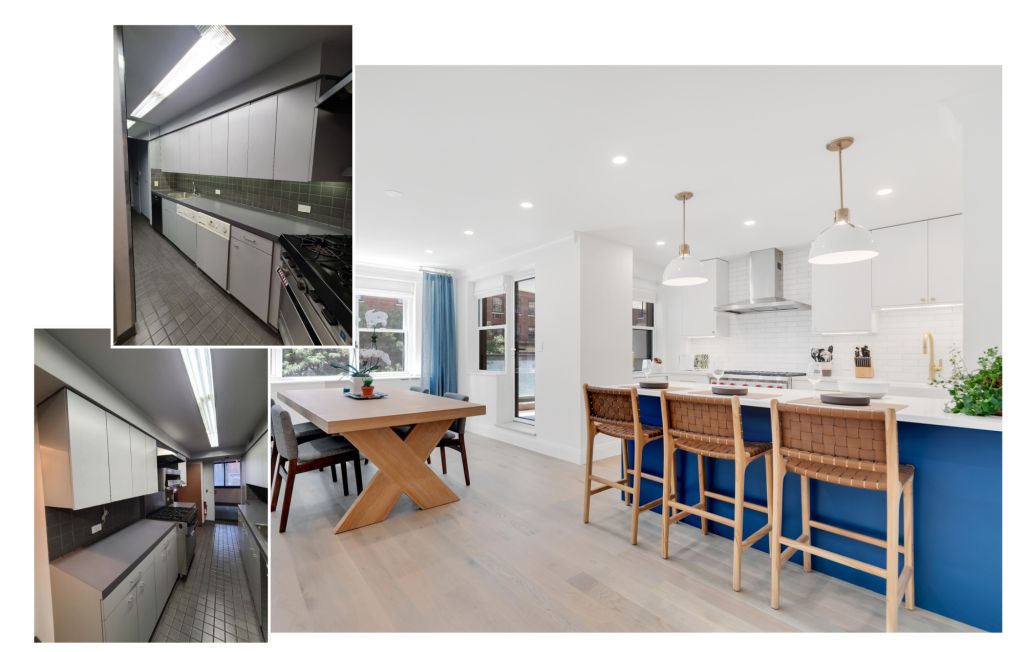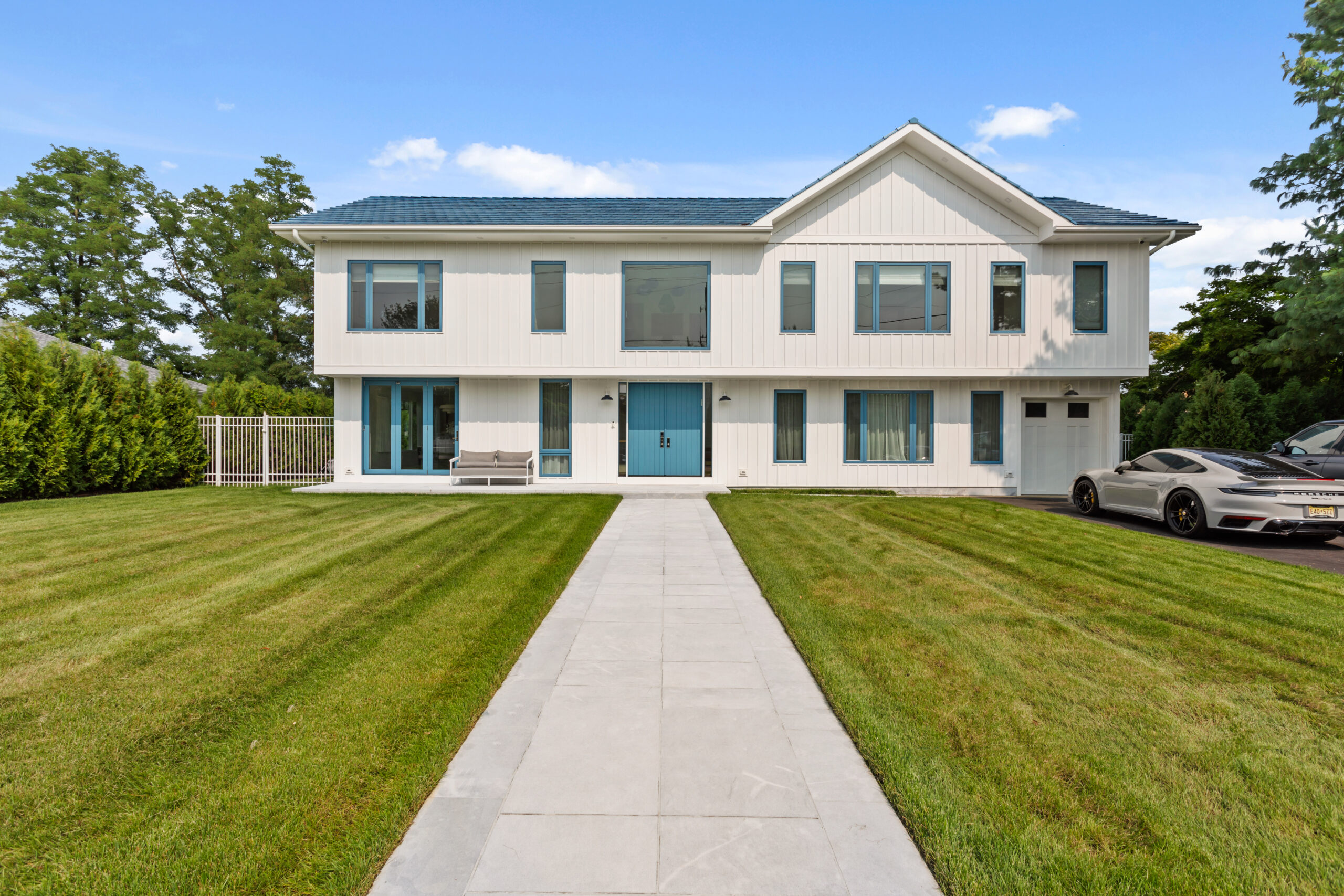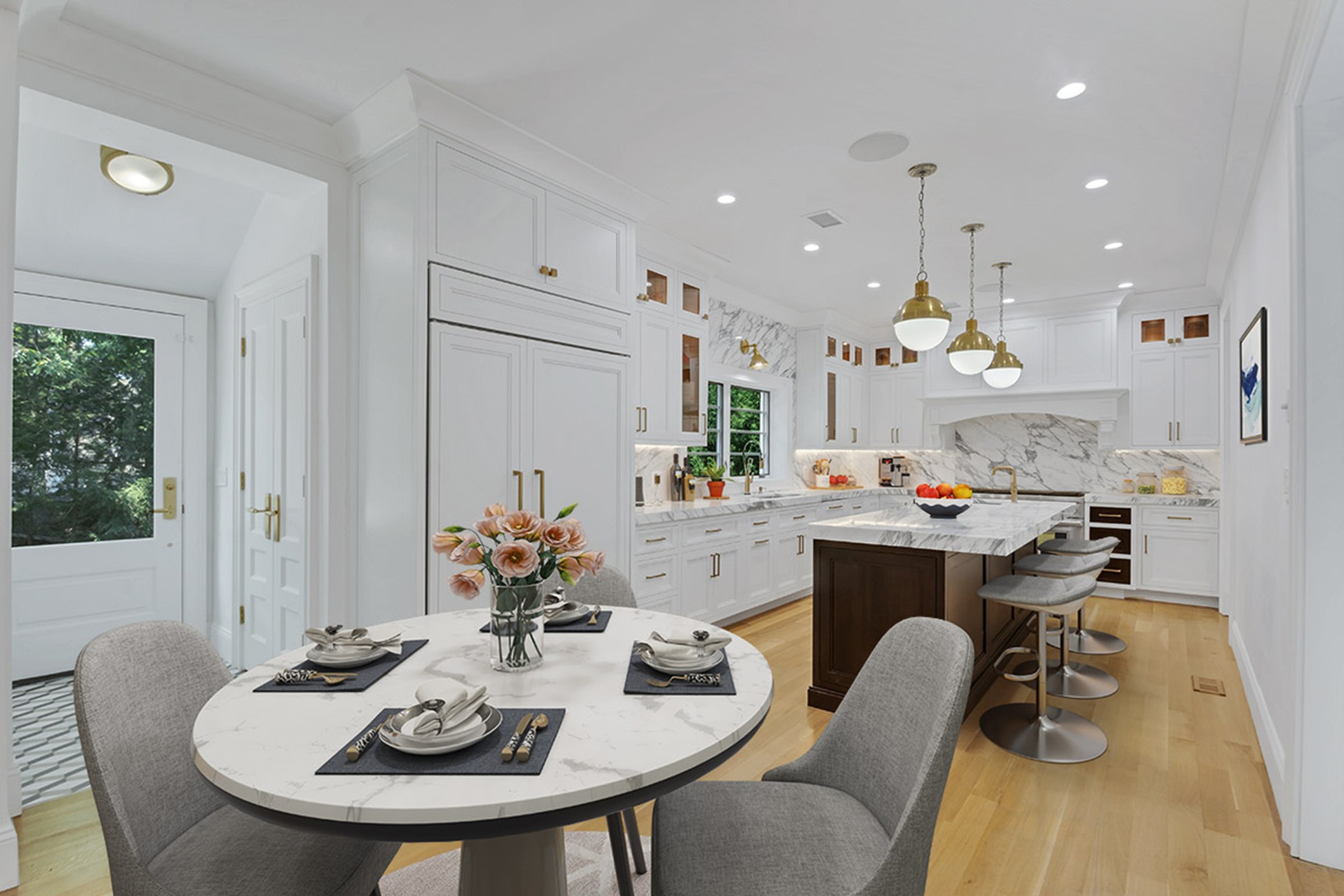NYC Building Alteration Agreement Process
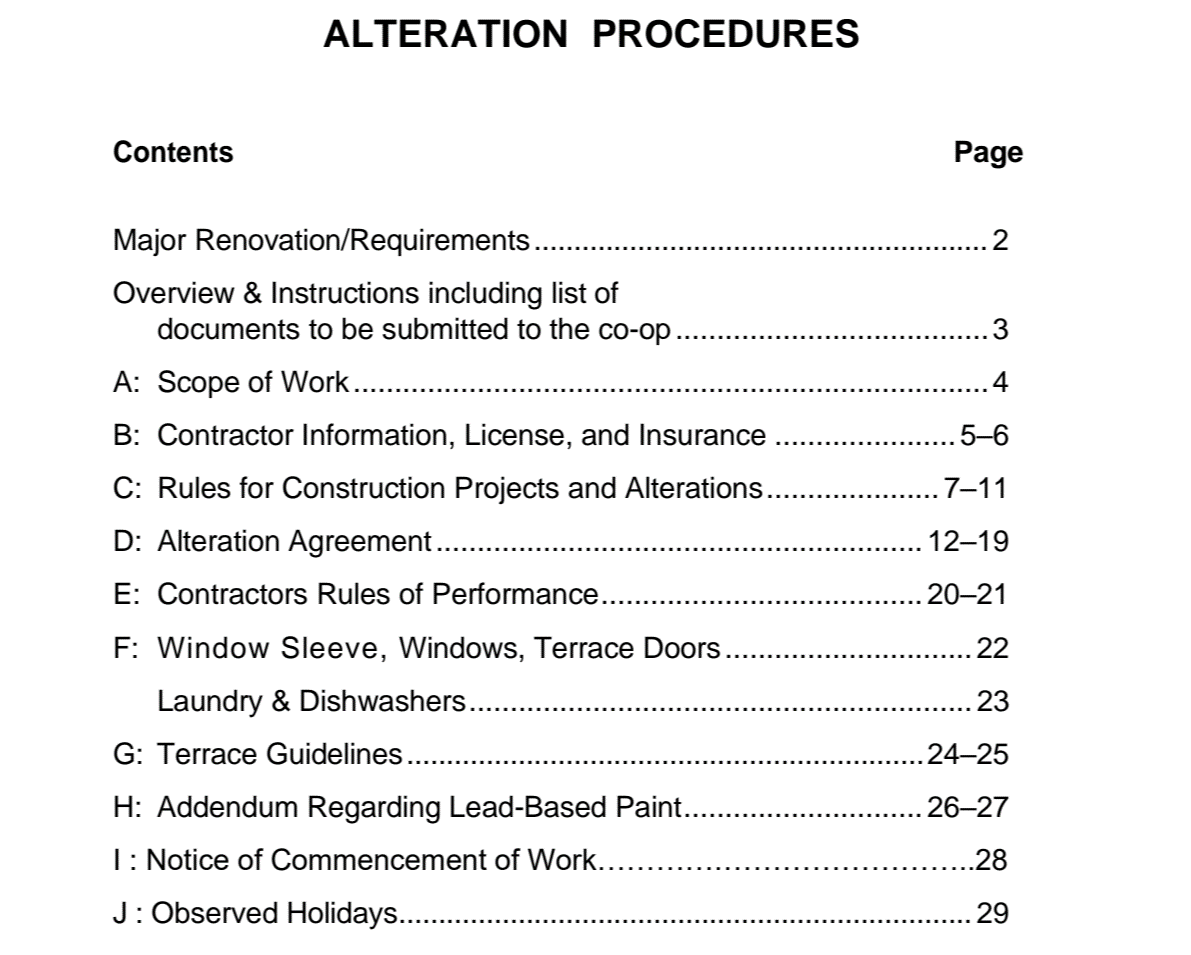
Everything You Need to Know Before Starting a Renovation in NYC
Renovating a property in New York City can be incredibly rewarding—but it’s also a complex process, especially when your project involves working within a multi-unit building. Whether you’re planning a kitchen upgrade or a full gut renovation, you’ll likely need to navigate what’s known as a building alteration agreement—a formal set of rules and approvals required by your building’s board or management.
This blog will walk you through 8 essential points every property owner should consider before starting a renovation in NYC. From understanding your property type to reviewing insurance requirements and contractor approvals, each of these points can save you from delays, unexpected costs, and compliance headaches.
- Understand the Type of Property You’re Renovating
The first step in the alteration agreement process is knowing what kind of property you own—and it matters more than you might think. Renovating a co-op or estate co-op is a very different experience from renovating a condo, and all three differ significantly from work on a private townhouse or single-family home.
In co-ops, the board has substantial control over what kinds of alterations are allowed and often requires more detailed plans, architect involvement, and longer approval timelines. Condos, while typically more flexible, still require formal approval and have their own set of alteration rules. Townhouses and private homes, on the other hand, often involve more straightforward permitting through the NYC Department of Buildings (DOB), though landmark (LPC) status or zoning restrictions can still apply.
- Get Familiar with Board and Building Approval Processes
Clients play a vital role in the early stages of their renovation by helping their design-build team get properly acquainted with the right contacts at their co-op board and building management. Sharing accurate and up-to-date contact information for your property manager, board president, and any relevant building superintendents or committee members helps jumpstart the approval process and avoids unnecessary delays.
Before any renovation work can begin in a co-op or condo, understanding and navigating your building’s approval process is critical. This is often one of the first steps in your renovation journey, and at STAR, we guide you through it from day one.
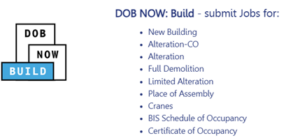
We reach out directly to the appropriate building representatives—especially the person responsible for managing the building’s DOB NOW account. While we don’t access the portal ourselves, we maintain open communication with that individual to ensure they’re aware of upcoming filings and can review or respond to DOB requests as needed. For more information about the DOB NOW Public Portal, you can visit the DOB NOW Public Portal and review the DOB NOW Public Portal FAQs.
dOur team also handles communications with management and the board to request the alteration agreement, clarify building-specific insurance requirements, and determine whether a Tenant Protection Plan (TPP) or other filings are necessary. Taking care of these steps early on keeps your project moving and minimizes the risk of administrative delays.
For clients, this means fewer headaches, less guesswork, and confidence that your renovation is proceeding smoothly and by the book.
In New York City, the Department of Buildings (DOB) classifies alteration work into different types, primarily Alteration Type 1 (ALT1) and Alteration Type 2 (ALT2), each with distinct requirements and implications for your renovation project. Understanding which permit applies is critical—and this is where your licensed professionals, such as architects and engineers, play a key role. They not only handle the design and filings but also guide you in assembling the right team of experts required for your specific scope of work.
ALT1: This permit is required for major alterations that change the use, egress, or occupancy of a building. For example, combining two apartments into one unit or converting a commercial space into a residential one would necessitate an ALT1 filing. Such alterations typically result in a new or amended Certificate of Occupancy.
ALT2: This permit covers multiple types of work that do not affect the use, egress, or occupancy of the building. Common ALT2 projects include interior renovations like kitchen or bathroom remodels, where plumbing and electrical systems are updated but the overall layout and occupancy remain unchanged.
Understanding the distinction between these permit types is crucial, as it affects the scope of work, approval process, and timeline for your renovation. Once you know which type of alteration you’re undertaking (ALT1 or ALT2), the next step is assembling a team of licensed professionals to help you meet DOB and building requirements. Renovations in NYC—especially in co-ops and condos—are heavily regulated, and the expertise of Star Renovations NY will ensure your timeline and budget are catered too appropriately!
- Architects: Nearly all DOB filings require stamped drawings from a licensed architect, particularly for ALT1 and most ALT2 projects. An architect not only designs your space but also ensures that the renovation complies with local building codes, zoning regulations, and your building’s alteration agreement. In many co-ops, the board will require an architect’s plans for approval before they even allow construction to begin.
- Licensed Contractors & Electricians/Plumbers: All major trades involved—electrical, plumbing, HVAC—must be carried out by NYC-licensed professionals. Unlicensed work isn’t just illegal; it will also be rejected by the DOB and your building, potentially leading to fines or stop-work orders.
- Expeditors: These are professionals who specialize in navigating NYC’s bureaucratic maze. While not legally required, expeditors can save you significant time by managing DOB filings, tracking permit statuses, and coordinating paperwork between your professionals and the city. In projects where timing is critical—like gut renovations in buildings with strict seasonal work windows—an experienced expediter is often worth the investment.
Each of these professionals plays a key role in translating your renovation vision into a fully approved, code-compliant project. Getting them involved from the planning stage is essential for a smooth process. At Star Renovations, we bring all of these experts—architects, project coordinators, expeditors, and site supervisors—under one roof. This integrated team structure allows for seamless communication, quicker decision-making, and fewer delays, giving clients a more efficient and less stressful renovation experience from start to finish.
- Create a Realistic Budget
Renovating in NYC comes with plenty of financial surprises—unless you’re working with a team that’s transparent, experienced, and fully integrated. One of the best ways to stay on budget is to begin with an “all-in” proposal from a full-service design-build firm like Star Renovations NY. This means your contractor isn’t just executing construction, they’re also managing the planning and design process, architectural coordination, DOB filings, procurement, and scheduling from start to finish.
At Star Renovations, we handle everything on behalf of the client:
- Architectural and design services
- DOB filing and permit management
- Asbestos testing coordination
- Material sourcing and procurement
- On-site construction management
- Communication with building management and neighbors
Having a single, accountable team streamlines decision-making and minimizes the risk of miscommunication or costly change orders that often occur when multiple parties are managing different parts of the project.
Still, even the most thorough estimate needs to account for the “invisible” costs many first-time renovators overlook:
- Architect and engineer fees: These are required for most DOB filings and board approvals, yet they’re frequently left out of early planning and budgeting conversations.
- Asbestos testing and abatement: Older NYC buildings often require environmental testing before demolition. If asbestos or lead is found, mitigation must be professionally handled—and it’s not cheap.
- Contingencies: We always recommend setting aside 10–15% of your budget for unexpected issues that arise during demo or construction (e.g., hidden plumbing problems, outdated electrical work, or structural surprises behind the walls). We have seen a lot of unexpected issues specifically in Estate Properties in NYC.
- Timing and Logistics
Renovation timing in NYC is rarely as simple as just “starting construction.” While your project scope may be clearly defined, how long it takes—and how efficiently it moves—depends heavily on your building’s rules, the city’s permitting process, and logistical coordination.
Here’s a general idea of how long different types of renovation projects typically take, based on our firm’s experience with co-op and condo units across the city:
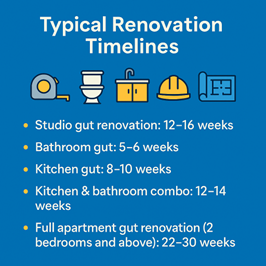
These estimates include time for demolition, brand new rough-ins for electric and plumbing, finishes, inspections, and punch list completion—but they can fluctuate depending on building policies and contractor access.
What can delay a renovation? Often, it’s not the work—it’s the building.
Many NYC co-op and condo buildings enforce strict work hours for contractors, such as 9 AM–5 PM Monday through Friday, with no work permitted on weekends or holidays. Some buildings even have seasonal restrictions, limiting when noisy work like jackhammering can occur.
Additionally, elevator access is a major logistical factor. Buildings with service elevators may require contractors to use those exclusively, and they often must be reserved in advance for deliveries or demolition day. Some properties restrict elevator use on specific “trash days” or even mandate full elevator shutdowns, all of which can disrupt your renovation schedule if not anticipated and managed.
Another common source of delay? Materials. Long lead times on custom cabinetry, tiles, appliances, or specialty finishes can quickly throw off a construction timeline if not accounted for in advance. That’s why working with a firm like Star Renovations NY, which prioritizes ordering materials early and confirming delivery ETAs before breaking ground, is so crucial. This level of preparation helps ensure your project doesn’t stall midway while waiting for fixtures to arrive or backorders to resolve.
The key to staying on track in NYC isn’t just having a solid plan—it’s having a team that’s ahead of the plan.
One of the most important decisions you’ll make in your renovation journey is who you hire to bring your vision to life. In a city as complex and regulation-heavy as New York, the stakes are especially high. Choosing a firm that’s well-versed in NYC co-op and condo renovations is essential—not just for quality craftsmanship, but for navigating the intricate rules, tight timelines, and communication protocols that come with these types of buildings.
A seasoned NYC-based renovation firm (such as Star Renovations NY) will already understand the nuances of building management, DOB filings, alteration agreements, and board expectations. They’ll also be prepared to work within narrow delivery windows, comply with noise and work-hour restrictions, and coordinate with building supers and doormen.
Before you hire, here are 5 key questions to ask your contractor or designer:
- Have you worked in this building or a similar co-op/condo before?
Prior experience can drastically reduce surprises during the process.
- Can you walk me through your permit and approval process?
You want a team that’s confident and clear about navigating DOB and NYC board approvals.
- Who will be my day-to-day point of contact during the project?
Communication is critical in multi-unit dwellings where coordination with building management is ongoing. A good design-build firm will have a dedicated project coordinator to manage this communication, ensuring all parties—from sub contractors to board members—are kept in the loop and that required documentation, approvals, and updates are handled efficiently
- What’s your plan for handling building rules, elevator use, and deliveries?
Logistics in NYC buildings can be tricky. A good team with back round history will already have a plan set in place.
- Can you provide references from past NYC co-op/condo renovations?
Verifying past success in similar environments is one of the best forms of insurance.
Lastly, consider the value of a “White-Glove” renovation service—especially in a dense urban setting like Manhattan or Brooklyn. Star Renovations NY will take on the heavy lifting of scheduling, filing, communication, and problem-solving. Our knowledgeable team will often coordinate directly with the building’s management, allowing you (the client) to stay focused on your day to day work commitment while focusing on some of the design and decision-making instead of the hassle it takes to get your project off the ground. In buildings with tight rules and limited work hours, a full-service firm can be the difference between a project that drags on and one that finishes smoothly.
- Dealing with Neighbors, Noise & Legal Liability
In NYC’s dense residential buildings, one of the biggest challenges during a renovation isn’t just the work itself—it’s managing the impact on your neighbors. Noise complaints, dust, and elevator use can quickly escalate into building violations, board complaints, or even fines. For buildings with occupied units during construction, a Tenant Protection Plan (TPP) is often required by the building management and by the NYC Department of Buildings .
A TPP outlines how safety will be maintained for occupants throughout the project, addressing issues like fire safety, egress, air quality, and noise mitigation. This is especially common in co-ops, condos, or multi-unit dwellings—even when the renovation only affects a single unit. A design-build firm plays a crucial role in this process by coordinating with architects and filing professionals to develop and implement a compliant TPP, ensuring both legal requirements are met and residents experience minimal disruption.
To help avoid complaints and ensure a smooth experience for everyone involved, we take a multi-layered approach:
- Proactive Neighbor Communication: Before work begins, we provide our clients with professionally written letters (“Neighbor Notice”) addressed to neighboring units. These letters include detailed project timelines, our company contact information, and direct access to the assigned project manager’s phone number and email, so residents know who to contact with any concerns.
- Noise and Dust Control: While some noise is unavoidable, we take steps to contain it and reduce its reach. This includes installing zip walls at entry doors to limit dust transfer, using floor pads to ensure workers clean their footwear before stepping into common areas, and scheduling the loudest work during permitted hours only. We also utilize Negative Air Blowers, which create a vacuum effect to pull dust and airborne particles out of the work area, filtering them before exhausting the air outside. This significantly improves air quality in adjacent spaces and is especially important when neighboring units remain occupied during construction.
- Respect for Shared Spaces: We prioritize maintaining clean and orderly common areas. Workers are instructed to keep hallways clear, elevators protected, and shared spaces clean and covered. Our team performs daily clean-ups and monitors traffic in and out of the building to avoid unnecessary disturbance.
- Direct Building Coordination: We maintain constant communication with the building’s assigned point of contact—whether that’s a super, property manager, or board liaison. This ensures we’re always operating within the building’s renovation guidelines and can address issues before they escalate.
When handled correctly, these steps not only prevent violations and complaints but also help preserve your reputation within the building—especially valuable for co-op owners who may need future board approvals.
- The Final Checklist Before Breaking Ground
Before any walls come down or materials are delivered to sites, a successful renovation hinges on one thing: thorough preparation. At Star Renovations, we don’t just jump into construction—we finalize every detail to ensure your project starts strong and stays on track.
As mentioned in section #5, one of the most important steps is material procurement. Your dedicated Coordinator & Manager work together to confirm that all specified materials are either:
- Already in our possession,
- Inspected and stored properly, or
- Scheduled with a confirmed delivery ETA.
In parallel, we compile the Project Spec Book—a master document outlining every detail of the renovation, from materials and finishes to construction methods and installation guidelines. This becomes the go-to reference for the entire team and ensures consistency across all trades.
We also confirm that all necessary permits are in place, along with approved plans and documentation from the DOB and the building’s board. Any missing paperwork at this stage could cause immediate delays.
Just before demolition begins, we coordinate a pre-demo walkthrough with you (the client) and the building management and, when necessary, arrange for pre-construction inspections of neighboring units to document existing conditions. This helps protect everyone involved and minimizes disputes during or after construction.
Finally, we secure written approval from the building to begin on the scheduled start date, ensuring all parties are aligned and the project can proceed without interruption.
This checklist is more than a formality—it’s what sets the tone for a smooth, efficient, and professional renovation process.
Want to make sure your project stays on track?
Be sure to check out our blog for Tips to Stay on Budget and Schedule for more expert guidance before your renovation begins.
Schedule Your Consultation Today!
Planning an apartment remodel can be stressful, especially when you’re coordinating permits and worrying about building requirements and regulations. At Star Renovations NY, we’re experts in handling the complex parts of an apartment renovation.
For a stress-free, white-glove remodeling experience, trust NYC’s expert design/build team: Star Renovations NY. With our exceptional attention to detail and personalized process, we can ensure your vision becomes a reality.
Explore our project portfolio and request a consultation with Star Renovations NY today by calling (718) 785-9402.

